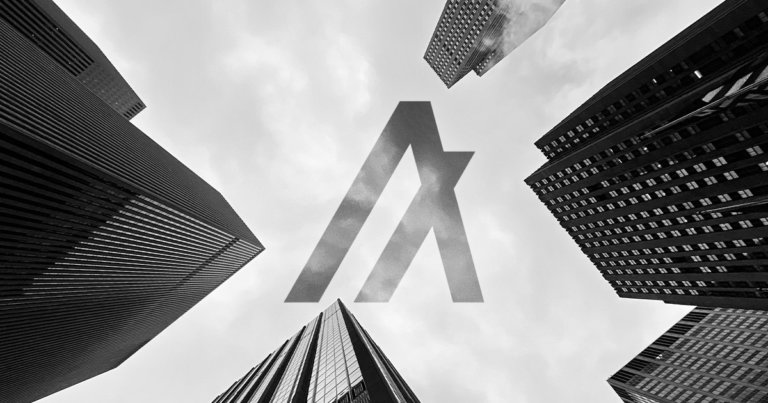 Op-ed: How Algorand is gearing up to become a contender to Ethereum
Op-ed: How Algorand is gearing up to become a contender to Ethereum Op-ed: How Algorand is gearing up to become a contender to Ethereum
The past few years have seen numerous crypto projects — from Neo to Solana — threaten to dethrone Ethereum as the world’s leading decentralized app (Dapp) platform.

Photo by Florian Schmid on Unsplash
The following is a guest post from Sebastian Quinn, the co-founder of Yieldly, a DeFi suite built for the Algorand blockchain.
While some have come close, none have quite managed to overthrow the incumbent — neither in user adoption nor market share. However, as time goes on and scalability and efficiency qualms grow stronger, so too do Ethereum’s contenders.
When it comes to pinpointing which networks stand a fighting chance at usurping Ethereum’s position as the most popular protocol, Algorand’s extensive network of partners and stellar reputation among developers and crypto enthusiasts aren’t to be dismissed.
Leading the charge
Silvio Micali founded Algorand back in 2017 and continues to oversee all research on theory, security, and crypto finance today. Micali has been on the faculty at MIT’s Electrical Engineering and Computer Science Department since 1983, placing him on par with some of the early cypherpunks.
Indeed, Micali went on to win the Turing Award in 2012 for his contributions to cryptography, most notable of which was the creation of zero-knowledge proofs — allowing parties to prove or disprove something without having to disclose any pertinent data.
Algorand’s reputation among developers is undoubtedly a result of its association with Micali and his substantial work in the cryptography field. In this respect, Micali’s achievements and input shouldn’t be taken lightly when comparing Algorand’s prowess against that of other blockchain networks.
Fostering innovation through technical development
Ethereum may have already made a name for itself in the NFT space, but Algorand is closing in rapidly. Just over a month ago, the Algorand Foundation announced the launch of the Algorand Virtual Machine or AVM. The AVM presents a more robust system to create dapps that can scale to be used by billions globally.
The upgrade will bolster smart contract capabilities, allowing for more complex applications and unlocking functionality for DeFi and NFT dapps previously unseen within the Alogrand ecosystem. Most importantly, the AVM will also give developers the necessary tools to write smart contracts in Python or Reach — making smart contract development on Algorand accessible to a far broader developer demographic.
With the ecosystem looking to rival that of the Ethereum network, instilling novel smart contract capabilities and reducing barriers to entry is integral to attracting new developers and projects.
Investing in the ecosystem
In recent months, Algorand has cultivated quite the following among independent developers and companies looking to take advantage of the network’s scalability to build their DeFi and dapp projects. This is, in no small part, due to the numerous incubators, funds, and accelerators offered by the Algorand Foundation.
In September 2021, the project launched a $300 million dollar DeFi fund focused on bootstrapping innovative DeFi-centric protocols. The fund’s mandate was to support infrastructure and applications that foster ecosystem utility, liquidity, and growth.
This isn’t the first time the Algorand Foundation has reinvested into ecosystem development. In April 2020, Algorand announced an investment of 250 million ALGO, worth approximately $50 million at the time, to encourage opportunities across application development, tools & infrastructure, research, and education & community.
PureStake’s AlgoSigner is just one of the many successful projects that received Algorand’s grant to build their product, a wallet extension for Chrome that lets users approve and sign transactions generated by Algorand applications. Another was Yieldly, the first DeFi protocol built on the Algorand blockchain and a launchpad for promising Algorand-based projects.
Algorand has gained a competitive edge over Ethereum by actively investing in talent to build Algorand-native products and expand their ecosystem as rapidly as possible.
Furthermore, 21Shares AG recently launched an Algorand ETP on the SIX Swiss exchange. This will expose the Algorand ecosystem to a host of more traditionally minded investors, and drive more value into the network as a whole. There is almost $3BN of investment across 20 crypto ETPs on 21Shares AG, showing the appetite and activity for crypto investment opportunities there, of which Argoland will now be an active component.
Building a robust DeFi ecosystem through partnerships
Algorand has created a hospitable environment for developers to build not only their projects but also a strong community. Algorand’s success in this respect is partly due to its position as the first open-source, permissionless, and efficient pure proof-of-stake protocol. Ethereum, meanwhile, still has a fair way to go until its full transition to a fully scalable PoS blockchain.
Moreover, Algorand’s decentralization, speed, and security have earned it trust among Web 3.0 developers globally. In fact, Algorand’s robust underlying technology ensures interoperability and ease of use among developers, playing a pivotal role in why many cryptocurrency aficionados anticipate it overtaking Ethereum as the leading blockchain network.
Algorand’s rise to popularity has been further accelerated by its partnerships with prominent organizations around the world. CERN, for instance, is building the world’s first immutable air quality ledger in partnership with Algorand. Working in tandem with PlanetWatch — CERN’s very own blockchain company — Algorand will empower climate change experts with the means to securely store crowd-sourced data on air quality to combat pollution.
Algorand is also working with The International Blockchain Monetary Reserve (IBMR) on a macroeconomic project called Asia Reserve Currency Coin, or ARCC. The goal of the project is to promote financial inclusion in Southeast Asia and combat corruption by incentivizing the public to report issues. Algorand shows no sign of slowing down when it comes to forming meaningful partnerships with like-minded organizations.
Algorand is already built to house a scalable DeFi and NFT dapp ecosystem — so while Ethereum may have a first-mover advantage, it may end up playing catch up with Algorand for years to come.

























































